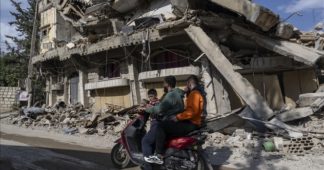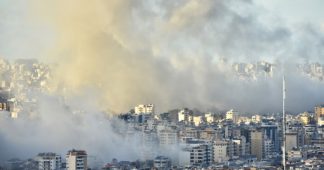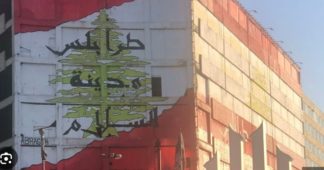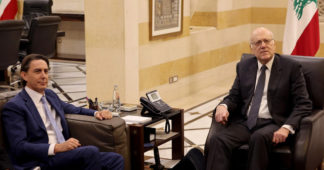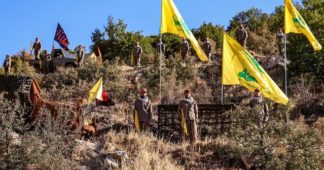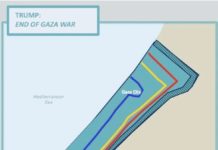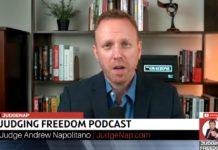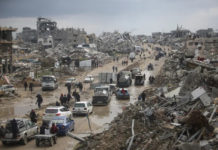by Aseel Saleh
Aug 08, 2025
The Lebanese group defied the decision, confirming its commitment to continue with the resistance against the Israeli occupation.
The Lebanese Cabinet approved the objectives outlined in the phased plan presented by US envoy Tom Barrack to disarm Hezbollah by the end of the year during a session held on Thursday, August 7.
The plan was proposed by Barrack during his visit to Lebanon on June 19, and was accompanied by considerable political pressure by the US and military pressure by Israel, which has launched multiple airstrikes against the Arab country ever since.
Friday, August 8, marked the most recent Israeli aerial aggression on Lebanon, in which a number of people were killed, including senior member of the Popular Front for the Liberation of Palestine (PFLP) Mohammad Wishah and his body guard.
According to the Lebanese Information Minister Paul Morcos, the objectives of the approved US plan include:
- Lebanon’s commitment “to implementing the Taif Agreement, the Lebanese Constitution, and the UN Security Council resolutions, particularly Resolution 1701 (2006)”.
- Extending the sovereignty of the Lebanese state over Lebanon’s entire territory.
- Reinforcing the role of legitimate institutions.
- Establishing the monopoly of the state over the decisions related to war and peace.
- Ensuring that arms are exclusively possessed by the state throughout Lebanese territory.
- Ensuring the durability of the cessation of hostilities, and ending all types of violations, through air, land, and sea.
- Ending the armed presence of all non-state factions, including Hezbollah, across the Lebanese territory – both south and north of the Litani River – in a gradual manner.
- Providing appropriate support to the Lebanese Army and Internal Security Forces.
- The deployment of the Lebanese Army in border areas and key interior regions.
- The withdrawal of Israel from the five remaining points in southern Lebanon.
- Resolving border and prisoner issues through indirect negotiations and diplomatic channels.
- Ensuring the return of civilians of border villages to their houses and properties.
- Guaranteeing the complete withdrawal of Israel from Lebanese territory, and between Lebanon and Syria.
- The permanent and visible demarcation and definition of the international border between Lebanon and the Palestinian territories occupied by Israel.
- Organizing an economic conference with the participation of the US, France, Saudi Arabia, Qatar, and other “friends of Lebanon” to support reconstruction plans and rebuilding the Lebanese economy, “in line with the vision of US President Donald Trump”.
- Providing additional international support to the Lebanese security forces, especially the Lebanese Army.
We will treat the government’s decision as though it does not exist, says Hezbollah
Although the Lebanese government decided to submit to the demands of the United States and its allies, Hezbollah emerged more determined than ever to uphold the path of resistance against the most vicious colonial project in the West Asia region, represented by the Israeli occupation.
All the ministers who represent the Shia Duo (the Amal movement and Hezbollah) walked out of the Cabinet’s session that was held two days before the approval was issued, due to President Joseph Aoun and Prime Minister Salam Nawaf’s rejection of the request to postpone Thursday’s session.
The withdrawal of the Shia ministers Tamara al-Zein, Rakan Nassereddine, Mohammad Haidar and Fadi Makki resulted in the loss of the session’s legitimacy in accordance with a normative rule in the Lebanese politics, which stipulates the participation of all main sectarian components in Lebanon in the executive authority. Consequently, the approval of the US plan is considered illegitimate.
This principle was asserted by Hezbollah Secretary General Sheikh Naim Qassem in a televised speech on Tuesday, August 5, during which he said: “We are arranging our internal situation through cooperation and understanding; no solution will happen without internal consensus. The state must tell the international community that it is responsible for protecting its southern and eastern borders and must assume that responsibility.”
The leader of Hezbollah added that Lebanon will “confront foreign guardianship, American-Arab encroachment, and internal bullying” during this “dangerous phase” of its path to independence, but it is stronger “through the triad of the army, the people, and the resistance, and through unity”.
Before the Cabinet endorsed the disarmament plan on Wednesday, August 7, Hezbollah had already declared its stance. This came one day after the Lebanese Cabinet instructed the Army to set a plan to confine the weapons to the state by the end of the year.
“This decision undermines Lebanon’s sovereignty and gives ‘Israel’ free rein to tamper with its security, geography, politics, and very existence.” The resistance group said in a statement, emphasizing that it “will treat this decision as though it does not exist”.
Iran voices support for Hezbollah’s decision, with no intervention from its side
Iranian Foreign Minister Abbas Araghchi affirmed his country’s support for its ally Hezbollah after it defied the US disarmament plan in a televised interview on Wednesday, denying any intervention by Iran in the decision.
“Any decision on this matter will ultimately rest with Hezbollah itself. We support it from afar, but we do not intervene in its decisions,” Araghchi affirmed, indicating that the group has recovered from the setbacks endured during its war with Israel last year.
We remind our readers that publication of articles on our site does not mean that we agree with what is written. Our policy is to publish anything which we consider of interest, so as to assist our readers in forming their opinions. Sometimes we even publish articles with which we totally disagree, since we believe it is important for our readers to be informed on as wide a spectrum of views as possible.
